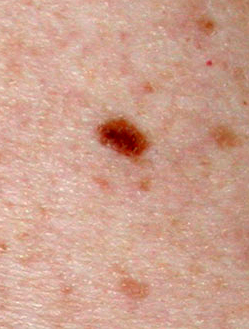Skin message sinking in
 One of Australia’s best-known public safety campaigns appears to be working.
One of Australia’s best-known public safety campaigns appears to be working.
Australia has become the first country in the world to see a drop in skin cancer rates, according to the Cancer Council.
There has been a dip in levels of melanoma and non-melanoma for Australians under the age of 45, though rates for over-50s are increasing.
Cancer Council Australia’s Terry Slevin says it is evidence that public health messages like “slip, slop, slap” were working.
“People age 45 and under grew up with sun-smart messages and the ‘slip, slop, slap’ campaign, messages which influenced the policy environment... but for people in their 50s and above, we’re seeing a 6% increase in skin cancer as a result of their high exposure to the sun. Unfortunately it was a population who used coconut oil and actively sought a tan,” Mr Slevin said at the launch of a new Australia-specific guide on the prevention of skin cancer.
The guide also dispels some modern myths about skin cancer and sun protection, such as the inaccurate beliefs that using sun cream leads to Vitamin D deficiency, or that nanoparticles make all sunscreens unsafe.
The book says that while Vitamin D deficiency may be a concern for those who go most of the year with no sun exposure, virtually all Australians make enough Vitamin D from September to April that they do not need to overexpose their skin to UV.
The book is available from CSIRO publishing.
The Cancer Council’s figures do still show a strong risk of skin cancer in Australia with 11,405 new cases of melanoma diagnosed in 2010, while becoming the the sixth most common cause of cancer death in Australian men and 10th for women.







 Print
Print